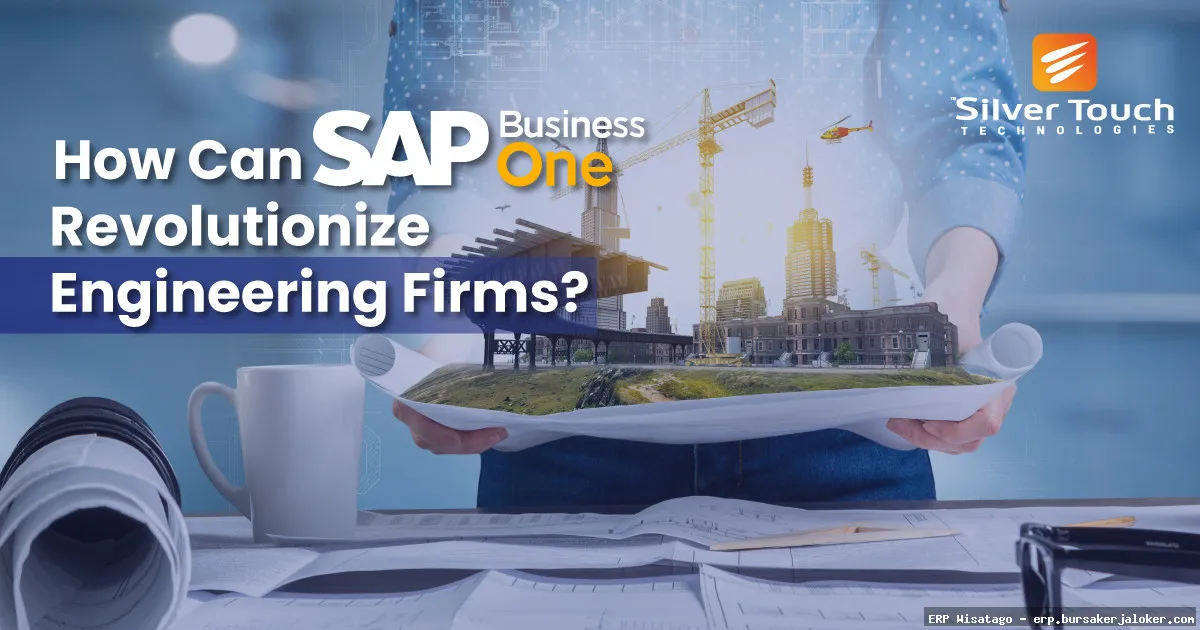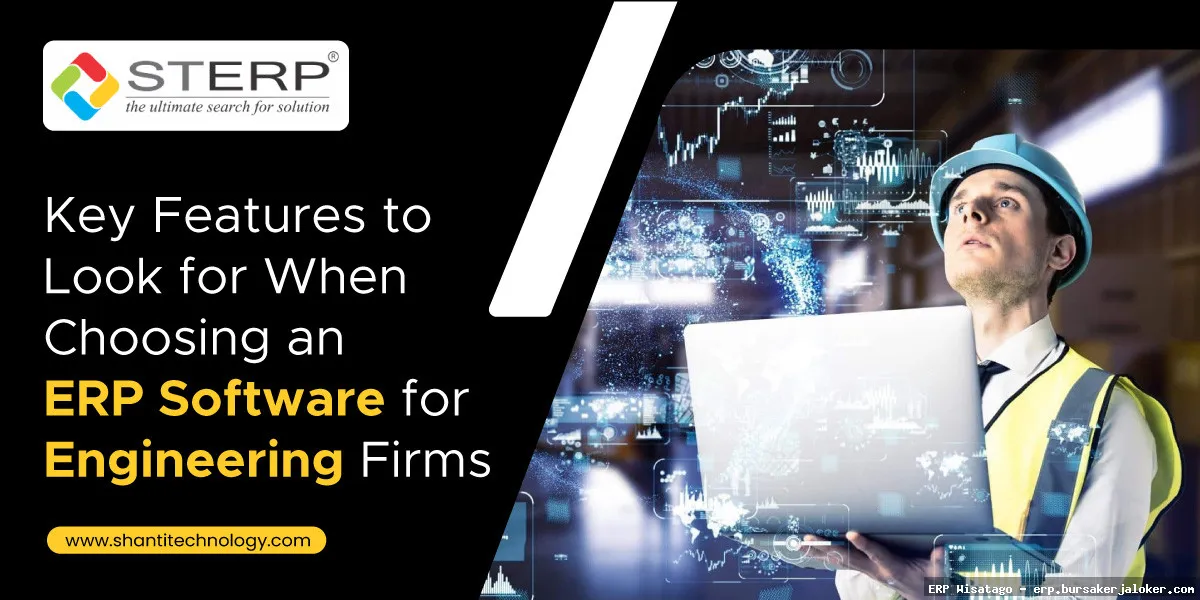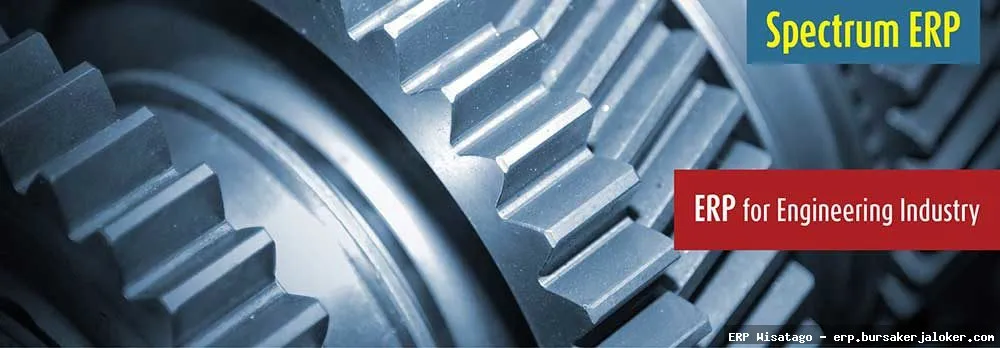Engineering firms face a unique set of challenges. From managing complex projects with tight deadlines and intricate designs to ensuring compliance with industry regulations, the demands are high. Often, these firms rely on a patchwork of software solutions – a CAD program here, a project management tool there, and spreadsheets everywhere else. This fragmented approach can lead to data silos, communication breakdowns, and ultimately, inefficiencies that impact profitability. Sound familiar? You’re not alone.
Enterprise Resource Planning (ERP) systems offer a centralized solution to these challenges. By integrating various business processes – from project management and accounting to resource allocation and procurement – ERP provides a single source of truth for all critical data. This allows engineering firms to streamline operations, improve decision-making, and gain a competitive edge. But choosing and implementing the right ERP system can be a daunting task. There are numerous options available, each with its own strengths and weaknesses, and the implementation process can be complex and time-consuming.

This comprehensive guide aims to demystify ERP for engineering firms. We’ll explore the key features and benefits of ERP, delve into the specific needs of engineering companies, and provide practical advice on selecting and implementing the right solution. Drawing from my own experience working with ERP implementations, I’ll share insights on common pitfalls to avoid and strategies for ensuring a successful ERP adoption. Let’s dive in and discover how ERP can transform your engineering firm.
What is ERP and Why is it Important for Engineering Firms?
At its core, ERP is an integrated software system that manages and automates core business processes. Think of it as the central nervous system of your organization, connecting different departments and functions to provide a unified view of your operations. For engineering firms, this means integrating project management, finance, human resources, supply chain management, and customer relationship management (CRM) into a single platform.
Key Benefits of ERP for Engineering Firms
Implementing an ERP system can bring a multitude of benefits to engineering firms:
- Improved Project Management: ERP provides tools for planning, scheduling, and tracking projects, ensuring they stay on time and within budget. Real-time visibility into project progress allows for proactive identification and resolution of potential issues.
- Enhanced Financial Management: ERP automates financial processes, such as invoicing, accounts payable, and general ledger accounting. This reduces errors, improves accuracy, and provides better insights into financial performance.
- Streamlined Resource Management: ERP helps optimize resource allocation by providing a clear view of employee availability and skills. This ensures that the right people are assigned to the right projects at the right time, maximizing productivity.
- Better Inventory Management: For engineering firms that handle physical inventory, ERP can track inventory levels, manage procurement, and optimize warehouse operations. This reduces waste, minimizes stockouts, and improves efficiency.
- Improved Collaboration: ERP facilitates collaboration between different departments and teams by providing a centralized platform for sharing information and communicating. This reduces communication silos and improves overall efficiency.
- Data-Driven Decision Making: ERP provides access to real-time data and analytics, enabling informed decision-making. By tracking key performance indicators (KPIs), engineering firms can identify areas for improvement and optimize their operations.
- Enhanced Compliance: ERP helps engineering firms comply with industry regulations by providing tools for tracking and managing compliance requirements. This reduces the risk of penalties and fines.
Specific Needs of Engineering Firms and How ERP Addresses Them
Engineering firms have unique requirements that generic ERP systems may not adequately address. It’s crucial to understand these needs and ensure that the chosen ERP solution is tailored to meet them.
Project-Based Accounting
Unlike businesses focused on product sales, engineering firms operate on a project-based model. This requires specialized accounting features that can track costs and revenues at the project level. ERP systems designed for engineering firms offer robust project accounting capabilities, including:
- Work-in-Progress (WIP) Tracking: Accurately tracking costs incurred on projects that are still in progress.
- Revenue Recognition: Recognizing revenue based on the percentage of completion or other project-specific milestones.
- Cost Allocation: Allocating indirect costs to projects based on predefined rules.
- Budgeting and Forecasting: Creating detailed budgets for each project and tracking actual costs against budget.
Resource Planning and Scheduling
Effective resource planning is critical for engineering firms to ensure that projects are staffed with the right people and skills. ERP systems provide tools for:
- Skills Management: Tracking employee skills and certifications to ensure that they are assigned to projects that match their expertise.
- Capacity Planning: Determining the available capacity of each resource and identifying potential bottlenecks.
- Scheduling: Creating project schedules that optimize resource utilization and minimize delays.
Document Management
Engineering projects generate a vast amount of documentation, including drawings, specifications, and contracts. ERP systems with integrated document management capabilities can help:
- Centralize Document Storage: Providing a single repository for all project-related documents.
- Version Control: Tracking different versions of documents and ensuring that everyone is working with the latest version.
- Workflow Automation: Automating document approval processes and routing documents to the appropriate stakeholders.
Integration with CAD and BIM Software
Seamless integration with CAD (Computer-Aided Design) and BIM (Building Information Modeling) software is essential for engineering firms. This allows for:

- Data Exchange: Exchanging data between ERP and CAD/BIM systems without manual data entry.
- Real-Time Updates: Automatically updating project plans and budgets based on changes in CAD/BIM models.
- Improved Collaboration: Enabling collaboration between designers, engineers, and project managers.
Choosing the Right ERP System: Key Considerations
Selecting the right ERP system is a critical decision that can significantly impact the success of your implementation. Here are some key factors to consider:
Industry-Specific Functionality
Look for an ERP system that is specifically designed for engineering firms and offers the functionality you need to manage your unique business processes. Generic ERP systems may require extensive customization, which can be costly and time-consuming.
Scalability
Choose an ERP system that can scale with your business as it grows. Consider your future needs and ensure that the system can accommodate increased transaction volumes, new users, and additional modules.
Integration Capabilities
Ensure that the ERP system can integrate with your existing software applications, such as CAD/BIM software, CRM systems, and other third-party tools. Seamless integration is crucial for data sharing and process automation.
User-Friendliness
Select an ERP system that is easy to use and intuitive. A user-friendly interface will encourage adoption and minimize training costs. Consider offering training sessions to all employees.
Vendor Reputation and Support
Choose a reputable ERP vendor with a proven track record and a strong commitment to customer support. Look for a vendor that offers comprehensive training, ongoing support, and regular software updates.
Total Cost of Ownership (TCO)
Consider the total cost of ownership, including software licenses, implementation services, training costs, and ongoing maintenance fees. Don’t just focus on the initial purchase price; consider the long-term costs of operating the system. For more information, you can refer to RMM as an additional resource.
ERP Implementation: Best Practices and Common Pitfalls
Implementing an ERP system is a complex project that requires careful planning and execution. Here are some best practices to follow and common pitfalls to avoid:

Best Practices
- Define Clear Goals and Objectives: Clearly define what you want to achieve with the ERP implementation. What are your key business challenges? What improvements do you hope to see?
- Involve Key Stakeholders: Involve representatives from all departments in the selection and implementation process. This will ensure that the system meets the needs of all users and that everyone is on board.
- Develop a Detailed Implementation Plan: Create a detailed implementation plan that outlines the tasks, timelines, and resources required for each phase of the project.
- Data Migration Planning: Carefully plan the data migration process to ensure that data is accurate, complete, and consistent. Data cleansing is often a necessary step.
- Provide Comprehensive Training: Provide comprehensive training to all users on how to use the ERP system. This will help ensure that everyone is comfortable using the system and can take full advantage of its features.
- Test Thoroughly: Test the ERP system thoroughly before going live to identify and resolve any issues.
- Go-Live Support: Provide adequate support during the go-live phase to help users transition to the new system.
Common Pitfalls
- Lack of Executive Sponsorship: Without strong support from senior management, ERP implementations are likely to fail.
- Poor Planning: Inadequate planning is a major cause of ERP implementation failures.
- Scope Creep: Allowing the scope of the project to expand without proper planning and resources can lead to delays and cost overruns.
- Insufficient Training: Inadequate training can lead to user frustration and low adoption rates.
- Ignoring Change Management: Failing to address the human side of change can lead to resistance and sabotage. Communicate the benefits clearly and address concerns proactively.
- Underestimating Data Migration Complexity: Data migration is often more complex and time-consuming than anticipated.
- Lack of Ongoing Support: Failing to provide ongoing support after go-live can lead to user frustration and a decline in system performance.
The Future of ERP in Engineering
The future of ERP for engineering firms is bright, with advancements in technology driving even greater efficiency and innovation. Cloud-based ERP solutions are becoming increasingly popular, offering greater flexibility, scalability, and cost-effectiveness. Artificial intelligence (AI) and machine learning (ML) are also being integrated into ERP systems, enabling predictive analytics, automated decision-making, and personalized user experiences. Furthermore, the Internet of Things (IoT) is playing a role, allowing for real-time data collection from equipment and sensors, leading to improved maintenance and operational efficiency. As these technologies continue to evolve, ERP systems will become even more powerful tools for engineering firms to manage their operations and stay ahead of the competition.
Conclusion
ERP systems offer a powerful solution for engineering firms looking to streamline operations, improve decision-making, and gain a competitive edge. By understanding the specific needs of engineering companies and carefully selecting and implementing the right ERP solution, firms can unlock significant benefits, including improved project management, enhanced financial management, streamlined resource allocation, and better data-driven decision making. While the implementation process can be challenging, following best practices and avoiding common pitfalls can significantly increase the chances of success. As the landscape of ERP technology continues to evolve, embracing these advancements will be crucial for engineering firms to thrive in an increasingly competitive market. Don’t be afraid to start small, focus on the most pressing needs, and gradually expand the system as your business grows. The investment in a well-chosen and implemented ERP system can pay dividends for years to come.
Frequently Asked Questions (FAQ) about ERP for engineering firms
What are the key benefits of implementing an ERP system specifically for engineering firms focused on project management and cost control?
Implementing an ERP system designed for engineering firms offers significant benefits, particularly in project management and cost control. Improved project tracking is a primary advantage, allowing for real-time monitoring of project progress, resource allocation, and budget adherence. This enhanced visibility enables proactive identification of potential issues and informed decision-making. ERP systems also facilitate better cost management by providing accurate tracking of project expenses, labor costs, and material usage. This granular data allows for detailed cost analysis, identification of cost-saving opportunities, and improved profitability. Furthermore, streamlined workflows and improved communication across departments lead to increased efficiency and reduced operational costs. Integration with other business systems, such as CAD and BIM, enhances data accuracy and collaboration.
How can an ERP system help engineering companies manage complex projects with multiple phases, subcontractors, and changing requirements?
An ERP system provides a centralized platform for managing the complexities of engineering projects. It enables comprehensive project planning, scheduling, and resource allocation across multiple phases. The system facilitates effective management of subcontractors by tracking their performance, managing contracts, and processing payments. Real-time data visibility allows project managers to adapt to changing requirements and make informed decisions to keep projects on track. Features like document management, collaboration tools, and change order management streamline communication and ensure all stakeholders are aligned. Furthermore, the ERP system can automate processes such as invoice processing and progress billing, reducing administrative overhead and improving efficiency. By providing a single source of truth for project information, an ERP system empowers engineering companies to manage complex projects effectively, minimize risks, and maximize profitability.
What specific features should an engineering firm look for when choosing an ERP system to ensure it meets their industry-specific needs for compliance, reporting, and resource planning?
When selecting an ERP system, engineering firms should prioritize features that address their specific industry needs. Strong compliance management tools are crucial for adhering to regulations and standards. Robust reporting capabilities are essential for generating accurate financial statements, project performance reports, and other key metrics. Look for features like job costing, WIP tracking, and revenue recognition specific to engineering projects. Effective resource planning functionalities are vital for optimizing the allocation of personnel, equipment, and materials. The system should support detailed scheduling, capacity planning, and resource forecasting. Integration with CAD and BIM software is also highly beneficial for data exchange and collaboration. Finally, ensure the ERP system offers scalability and flexibility to accommodate future growth and evolving business requirements. A system that’s tailored to your industry will provide the best return on investment.
